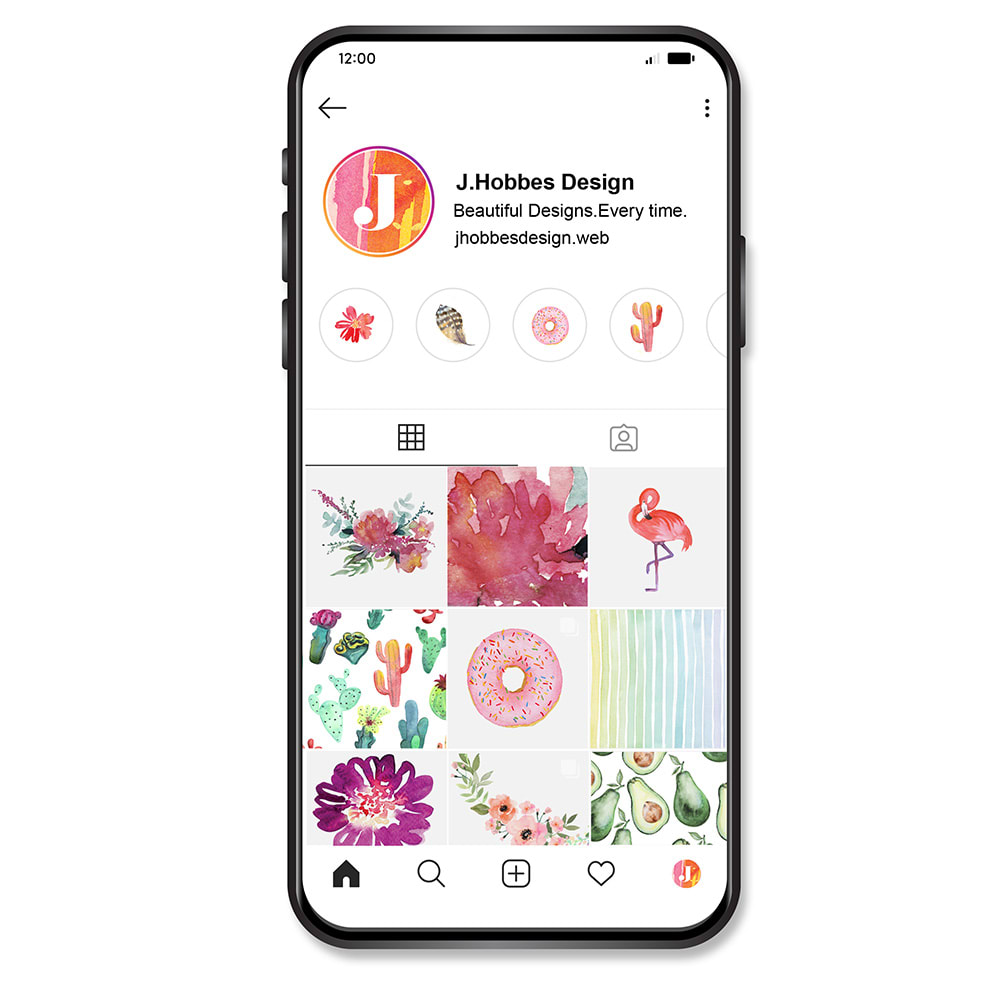Estimated reading time: 5 minutes
Digital marketing for small business doesn’t have to be complex to be successful. All you need is simple, yet thoughtful, planning and a consistent brand approach.
If your small business is ready to dive into digital marketing, you’ve come to the right place. Our 7-point checklist provides a step-by-step guide to launching a successful digital marketing strategy for any business. Whether you’re starting from scratch or ready to revamp your current strategy, follow these digital marketing tips for small business to launch an effective and professional online presence.
- Create a strong brand identity.
- Build a website.
- Prioritise great customer service.
- Establish a social media presence.
- Activate email marketing.
- Start a blog.
- Try online advertising.
1. Create a strong brand identity.
Who are you? And who is your brand? Creating a brand identity is essential for a successful digital marketing strategy. It’s important to have an understanding of your company’s mission and what makes it special. Then, project those values into everything you do — from your business name, to the photos you post on your website, to the voice you use on social media.
Building a strong brand image starts with a well-designed logo and picking the right fonts and colours. These visual elements will help make your brand identifiable, and give it a polished, professional feel. Remember: consistency is key when it comes to building your brand, so make sure you stay uniform across your print and digital marketing materials and any communications you send to customers.

VISTAPRINT TIP
Do you need help getting a custom logo for your small business? Create one yourself with Logomaker by VistaPrint, or find a professional at 99designs by Vista to bring your brand to life.
2. Build a website.
Your website is the backbone of your online presence — and often your customers’ first impression of your brand. Even if you’re a brick-and-mortar business that relies on foot traffic, there’s a great chance that your customers are researching you online before they come in. So, it’s essential that you have a professional website.
As you create your website, be mindful of the following elements:
- The right domain name. Make sure to pick one that reflects your business name as closely as possible, and is easy to remember. To help narrow down your search, ask yourself these questions: Does the name match my brand? Is it memorable? Is it easy to spell?
- Search engine optimisation. Search engine optimisation (or SEO) should play an important role in your small business online marketing strategy. Creating an optimised website will improve your ranking in web searches — you can do this by incorporating keywords into your site content and on the backend.
- Engaging web design. Most people are visual, so try to use attractive, high-quality photos (or even a short video) and easy-to-read fonts.
- Mobile responsive design. With mobile internet usage now exceeding desktop, a responsive website is a must-have. A responsive website will adjust to the screen size of different devices such as desktop computers, tablets or smartphones. This will help you reach more customers, provide a better user experience and will benefit your SEO ranking — Google now ranks mobile sites above desktop sites. The easiest way to create a mobile responsive website is to use a website builder that offers responsive templates…and make sure you test out changes to your website on your computer and your smartphone.
- Easy navigation. Build your website in a clear, simple way that’s easy for visitors to navigate. Potential customers will appreciate being able to find what they’re looking for in just a few clicks.
- Helpful content. Add relevant and helpful content such as contact information, an ‘About Us’ page and clear descriptions of your products and services. Your overall copy should be easy to read, informative and concise.
- Consistent branding. Your website should be a reflection of your brand. Visitors should instantly make a visual connection between your logo, print materials and brick-and-mortar location. So, make sure to include your logo on your website, and to use colours and fonts that align with the rest of your branded materials.
VISTAPRINT TIP
Always include your site’s URL (or a QR code that links to it!) on everything you create — postcards, receipts, brochures, flyers…you get the idea. It’s an easy way to encourage customers to take an actionable next step, and give them a place to find more information about your business.
3. Prioritise great customer service.
In the digital age, news travels fast…and before you know it, you’ve either established a reputation for poor or fantastic customer service. It goes without saying that a good customer support reputation will attract more customers and boost your brand perception.
Taking hours or days to respond to your customers via phone, email or social media will no doubt leave your customers unhappy with your services. Instead, make sure to provide swift, polite, honest and informative customer service to every customer. Try setting a goal of replying to everyone within 48 hours — and let them know this is the timeframe they can expect. Some channels you can utilise for this purpose are live chat, phone, social media, email and the FAQ section on your website.
4. Establish a social media presence.
Social media marketing should be top of your list when it comes to digital marketing for small business. It’s a great way to enhance your visibility, gain new traffic and build strong relationships with your current and potential customers without spending a penny.
There are multiple ways to use social media for your benefit, from creating hashtag campaigns and going live to posting deals and running giveaways. The options are endless!
Before you start a social profile for your business, get to know what each platform offers and then choose the one that fits your business and your content most. For example, highly visual content is a great fit for platforms like Instagram and Pinterest, while links to blog posts are great for sharing on Twitter or LinkedIn. Interested in creating video content? Check out TikTok and YouTube.
Again, use your brand’s colours, fonts, logo and voice on your profiles, so when customers search for your business, they see a consistent brand across every platform.
The great thing about social media marketing is that it can be automated. You can bulk schedule your social media posts across all your platforms so you can move on and focus on other areas of your business. Just make sure that you’re posting regularly, and incorporate dynamic visuals like photos, gifs and videos as they attract higher engagement.

VISTAPRINT TIP
If you’re new to social content creation, start with a template at VistaCreate — just add your logo, photography and brand colours to create something one-of-a-kind for your favourite social channel.
5. Activate email marketing.
Start planning your email marketing campaigns using design templates that include your contact information, business hours and of course, your logo. If you have a sizable customer list, consider splitting it into segments according to certain criteria, such as how often people buy from you, or by the types of products or services they prefer. It might take a little more effort, but targeted emails perform much better than blanket emails, so it’ll be worth your while. Create a schedule so you’re regularly communicating with your subscribers, and remember to always include something useful to the reader, such as a quick tip or how-to. These little touches will help build loyalty and increase your email open rates over the long term.
6. Start a blog.
Blogging is a great thing to include in your small business internet marketing strategy. As a small business owner, a blog gives you an opportunity to show your personality and highlight topics that wouldn’t necessarily fit into an email or print campaign. (Plus, a blog gives you a lot of opportunity to use those SEO keywords!)
To create a blog, design a page on your website that reflects your brand standards, and start posting! Set a publishing schedule so your readers can expect and anticipate new posts — consider creating recurring columns to keep you on schedule. Maybe every Tuesday you share a before-and-after home makeover experience, or every Saturday you feature a different decor brand you carry in your design shop. A successful blog is about quality, not quantity, so don’t feel pressured to post every day — focus on posting consistently, even if it’s just once a week.
7. Try online advertising.
If you have the money to spend on paid advertising, it can be a worthwhile investment. Online ads are designed to generate more clicks and traffic, which will significantly boost your visibility, and ultimately, your sales. There are so many platforms you can use to place your ads in front of your audience — Google, Facebook, Instagram, Twitter, TikTok and LinkedIn all offer paid ad placement. Paid online advertising can also be in the form of a podcast sponsorship, or an influencer collaboration.